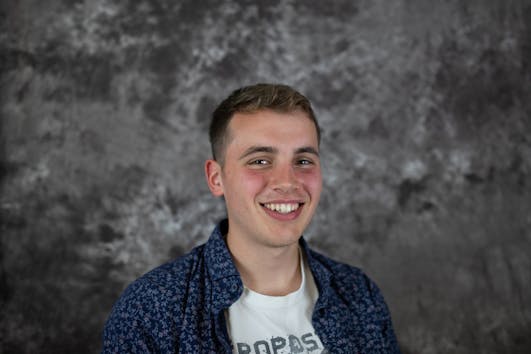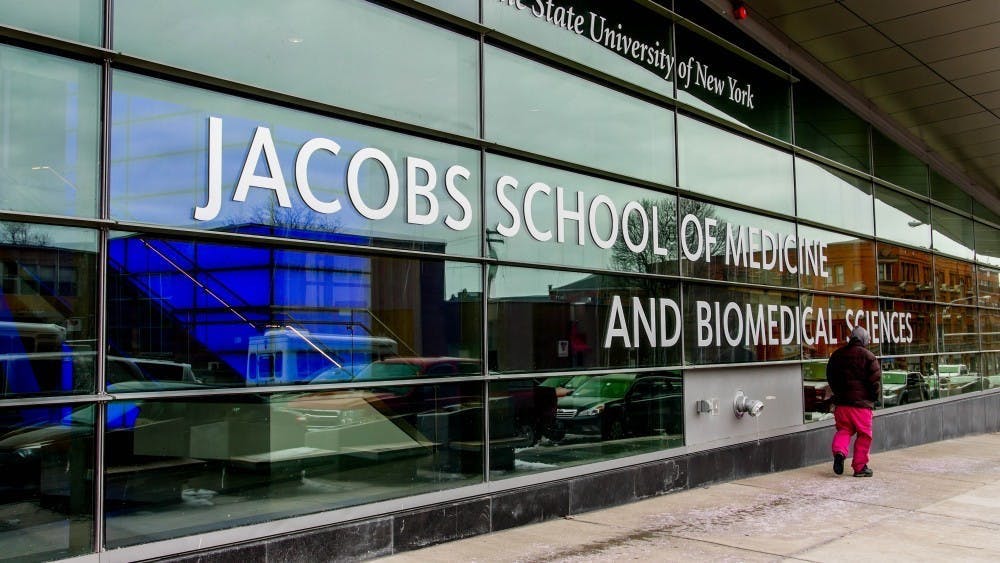UB medical residents and fellows filed for a unionization vote with the National Labor Relations Board on Feb. 22, according to filings with the National Labor Relations Board (NLRB).
If formed, the union would cover all 810 residents, fellows and interns — commonly referred to as house staff — who work in UB-affiliated hospitals under the Union of American Physicians & Dentists (UAPD), a Sacramento, California-based union that represents doctors and other healthcare workers. A simple majority of those voting would have to approve of forming a union in order to do so.
A date for the election has yet to be determined, but a hearing with the NLRB is scheduled to take place in a matter of weeks, according to Dr. Stuart Bussey, president of UAPD.
“They want a union,” Bussey said of the UB house staff. “They called us up, and they’re tired of working long hours, low pay, a sort of condescending attitude from the administration.”
Some UB house staff said that they have “continuously been overworked and underpaid” on ubhousestaff.org, an anonymous website set up by some employees to push for a union.
“During the Buffalo blizzard of 2022, many residents and fellows were forced to stay at their respective hospitals and work overtime, breaking ACGME [Accreditation Council for Graduate Medical Education] duty hours,” the site reads. “None received extra compensation... Why do we accept payment for ourselves in the form of a pat on the back for a job well done? It’s time we advocate for ourselves.”
In a Feb. 23 statement, the Jacobs School of Medicine said it was “highly appreciative” of trainees’ work and that house staff didn’t “identify worrisome concerns about working conditions” in surveys.
“We are aware of the organization efforts of our residents, fellows and interns — the latest in a growing number of graduate medical education unionization efforts taking place across the country,” the Jacobs School of Medicine said. “We look forward to continuing to work with our trainees to ensure they have a first-class learning environment and are compensated fairly and competitively.”
Pro-union house staff say they make less than residents and fellows at other universities in Western New York. Data compiled on their website shows that UB house staff make less than their counterparts at the University of Rochester, the University at Albany and Upstate Medical University. Fellows and residents at the University of Rochester also get a limited tuition waiver, retirement benefits, housing stipends and childcare benefits.
But while union organizers contend that UB’s compensation package “falls significantly short” of the University of Rochester’s, the Jacobs School says that organizers’ data doesn’t “reflect the vastly different benefit packages offered at the different upstate institutions.” UB, for example, pays for house staff’s medical and dental insurance in full, while the University of Rochester simply subsidizes their employees’ policies.
“When accounting for the differences in benefits, the UB compensation package is much closer to our colleagues across the state,” the Jacobs School said.
UB also says that all of its house staff received a 3% pay raise at the beginning of the year and will receive another 3% pay raise in July. Residents and fellows had previously negotiated for a 2% overall raise.
Bussey says the newly announced raises amount to an anti-union tactic designed to convince house staff that they don’t need a union.
“One of the reasons they did that is because about 100 people signed a petition,” he said. “It can be very subtle, the anti-union thing. They want to be the good guy, but they’ve had the opportunity to be the good guys for a long time.”
Bussey also said he expects to see other tactics considered by activists to be anti-union, including meetings with would-be members to explain why they don’t need to organize.
UB has not held such meetings as of publication.
Grant Ashley is the managing editor and can be reached at grant.ashley@ubspectrum.com

Grant Ashley is the editor in chief of The Spectrum. He's also reported for NPR, WBFO, WIVB and The Buffalo News. He enjoys taking long bike rides, baking with his parents’ ingredients and recreating Bob Ross paintings in crayon. He can be found on the platform formerly known as Twitter at @Grantrashley.





